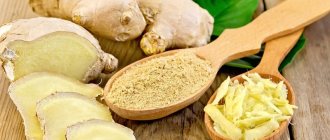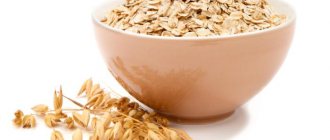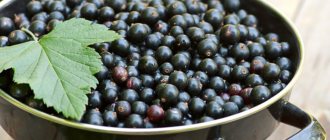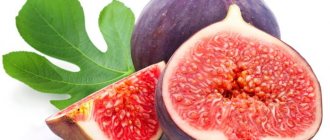Hello, dear parents of beautiful children.
Today we’ll talk about how beneficial rose hips are for breastfeeding and how to use it correctly for a young mother.
We all know about the undoubted benefits of natural products and medicines. Their use becomes especially relevant during the period when a young woman becomes a mother. Caring for the health of a little person is a priority. At the same time, you shouldn’t forget about yourself, because the mother’s well-being directly affects the child’s well-being. This amazing and healthy berry will help strengthen the body's defenses and improve overall condition.
Benefits for the body
Rose hips are called a storehouse of vitamins, capable of replenishing, when used correctly, the deficiency of a whole complex of microelements. It contains vitamins C, A, B, E, PP. It also contains magnesium, potassium, phosphorus, iron, zinc, copper and calcium.
Rosehip infusion has the following effects on the body of a young mother:
- strengthens the immune system;
- has an anti-inflammatory effect;
- tones;
- has a beneficial effect on lactation;
- removes waste and toxins;
- strengthens blood vessels;
- has diuretic properties;
- helps with diarrhea;
- helps with diseases of the kidneys and genitourinary system;
- useful for colds.
The healing properties and pleasant taste characteristics make rosehip a tasty and healthy drink during breastfeeding.
How to choose rose hips
Fresh or dry rose hips are non-toxic, so you can eat any berries. You can collect them yourself in natural conditions, or you can buy them in a store or market. They need to be washed and dried before use. All rose hips are edible even with minor damage.
Note! Red or red-orange berries are richest in vitamin C.
Is it useful to everyone without exception?
This berry, amazing in its properties, although famous for its benefits, still has a number of contraindications. It is not recommended to use rose hips for constipation and high blood pressure, gastritis and a tendency to allergies.
If we talk about whether a nursing mother who is not bothered by the above problems can drink rosehip decoction, then the answer is unequivocal - not only is it possible, but it is also necessary.
This wonderful drink will relieve fatigue and help you cheer up, and will also be an excellent preventive measure in the fight against viral and infectious diseases.
Contraindications
Despite all its usefulness, rosehip should be used with caution when breastfeeding, especially in the first month of a baby’s life, due to the presence of many contraindications. These include:
- PUD (gastric ulcer) and gastritis;
- hypotension and tendency to form blood clots;
- disruption of blood flow in the body;
- skin diseases (for example, dermatitis);
- intolerance to components;
- allergy to ascorbic acid;
- bronchial asthma and diabetes (no sweet drinks!);
- coral stones in the renal pelvis.
Frequent consumption of rose hips can negatively affect the condition of teeth due to the presence of vitamin C in its composition. Therefore, after each dose, you need to rinse your mouth as thoroughly as possible with clean water.
Preparing the berries
Rose hips, when breastfeeding a newborn, must be of high quality, excluding diseased, unripe or damaged fruits.
To prepare the drink, the berries must be dried. Fresh fruits can cause colic in infants and the development of an allergic reaction. Dried rose hips can be purchased at pharmacies or prepared yourself.
If you decide to collect and dry the fruits yourself, follow these rules:
- The berries must be picked when they are fully ripe and have acquired a dark orange or red hue. This is the period from late August to early October.
- Collect fruits in ecologically clean areas, away from roads and factories.
- The berries are dried in the open air, stirring the fruits from time to time, for 4-5 days. You can dry the fruits in the oven. To do this, the berries are placed on a baking sheet in a thin layer and dried at a temperature of 40 - 60 degrees for several hours. The oven door must be kept slightly open, so the moisture evaporates faster.
- Place the dried fruits in a cotton fabric bag and store in a cool, dark place.
Before using the fruits, you need to sort them and rinse them well in warm water to remove any dirt.
How to select and store rose hips
The berries are collected away from industrial facilities and highways. The optimal time for harvesting is August, September. The fruits are dried immediately after collection at a temperature of 90 degrees. The raw materials are mixed periodically.
Dry berries are sold in pharmacies and stores. Particular attention is paid to the appearance of the product. The berries must be clean, whole, without black spots or mold.
Medicinal varieties include “cinnamon” and “wrinkled” rose hips. They are recognized by the sepals located at the tip of the berries. In medicinal varieties they are curved on the sides. In fruits with a low vitamin content, the sepals “look” inward. A quality product is determined by its uniform red or brown color. Ripe rose hips are slightly astringent and have a rich sweet and sour taste with a herbal note.
Rose hips are stored at room temperature in a glass jar with a perforated lid or in a fabric bag. The room should be well ventilated.
Delicious recipes
A delicious healing drink from rose hips can be prepared in different ways. Of all the diversity of its species, the following are especially highlighted:
- Compote.
- Infusion.
- Decoction.
- Syrup.
You can prepare the drink at home yourself; it does not require much effort or time. Therefore, a young mother will cope with this task without any problems.
Rosehip compote
Pour dry berries with cold water, add sugar and place on the stove. After boiling, cook the compote for 6-7 minutes. Remove from the stove and leave for 2 hours. For 1.5 liters of water you will need 6 tbsp. spoons of berries and 3 tablespoons of sugar. If you wish, you can additionally add any fruits and berries to the compote during cooking.
Rosehip infusion
Grind dry berries with a blender. Place the raw materials in a thermos and fill with boiling water. We insist for 8-10 hours. For 1 liter of water take 4 tbsp. spoons of chopped fruits. You can add 1 tbsp to the infusion. a spoonful of sugar or honey. Drink 1/2 cup of the drink half an hour before feeding in the morning and evening.
Decoction
Pour water over the berries, bring to a boil and simmer over low heat for 15 minutes. Remove from stove and cool. Strain and take the brewed drink half a glass a day an hour before feeding. For 0.5 liters of water take 2 tbsp. spoons of berries.
Rose hip syrup
Pour hot water over the berries and cook for 20 minutes over low heat. Cool the broth and strain. Let it brew for a day. After this, drain the liquid into another container, leaving the sediment at the bottom untouched.
Add sugar and lemon juice to the liquid, bring to a boil and simmer over low heat for 30 minutes, stirring frequently. Pour the syrup into glass jars, close the lids and store in the refrigerator. The shelf life of the finished syrup is 1 month. It should be consumed 2 times a day, 1 dessert spoon.
For 2 liters of water you should take 1.3 kg of berries, 1.3 kg of sugar, and the squeezed juice of a quarter of a lemon.
How to consume rose hips
Based on the fruits the following is prepared:
- decoction;
- tea;
- compote;
- jelly;
- infusion.
In industrial conditions, syrup, oil, and extracts are obtained from raw materials.
Lactation drinks are prepared from dry raw materials. They contain more vitamins than fresh ones. In addition, fresh berries can cause gastrointestinal disorders in mother and baby.
Infusion
During the boiling process, a significant part of the useful elements is destroyed. To prepare the infusion in a thermos, pour hot water over the berries. With such processing, much more valuable properties are preserved.
To prepare the infusion, take 3 tablespoons of berries. The raw materials can be crushed before brewing using a mortar or coffee grinder. So the rose hips will “give” more vitamins to the drink. It is recommended to prepare the infusion in a thermos with glass or ceramic walls. Metal utensils destroy vitamin C.
Features of brewing while maintaining maximum benefits:
- The crushed raw materials are poured with hot water. To preserve useful elements, the temperature of the liquid should not exceed 80 degrees.
- The thermos is left open for 3-5 minutes. After this, cover it with a lid and leave for 4-12 hours. It is best to prepare the drink in the evening and drink throughout the next day.
Decoction
Such a drink loses a significant part of its elements due to heat treatment. The advantage of rosehip decoction is that it is ideal for women who are breastfeeding, as well as for children from 6-7 months.
For preparation, take 5 tablespoons of fruits. They are poured with 2 liters of hot water and brought to a boil. Cooking time – 7 minutes. The broth is wrapped in a towel and infused under the lid. Strain the warm drink and drink one glass 3 times a day. Honey or sugar is added to it.
Compote
This type of drink differs from the decoction in its richer taste. In a 2 liter saucepan, boil water with the addition of 3 tbsp. spoons of sugar. After bubbles appear on the surface, add 200 g of fruit. The compote is boiled for 7-10 minutes.
For a rich taste, raisins, dried apricots, and apples are added to the water along with rose hips.
Tea
In winter, the drink is drunk to strengthen the immune system and prevent vitamin deficiency. In summer, iced rosehip tea perfectly quenches thirst.
Cooking features:
- Not only fruits are suitable for brewing, but also leaves, petals, and roots of the bush. Before cooking, the kettle is rinsed with boiling water;
- Green tea is poured into the mesh and rosehip fruits (leaves, petals) are added. Pour boiling water over the dry mixture and cover with a lid;
- The tea is brewed for at least an hour. To keep warm, wrap the container with a towel;
- The tea leaves are poured into a glass and diluted with hot water. Add sugar, honey or stevia extract to taste.
It’s better not to be lazy and make rosehip tea from dried fruits yourself. Bagged tea often does not provide any benefit to the body, but it can cause harm.
Syrup
In this form, rose hips are used as an additive to drinks. Plant syrup for breastfeeding is recommended for use after consultation with a doctor for the treatment of hypertension and salt metabolism disorders. It contains a lot of magnesium, vitamins C, E and other elements. An excess of these substances can harm a nursing mother and baby if taken uncontrolled.
The syrup is also taken as a dietary supplement during meals to prevent flu and colds.
How to properly introduce rose hips into your diet
This berry is a fairly strong allergenic product. Therefore, during breastfeeding, rose hips are introduced into the mother’s diet gradually and with caution. You should start with 1 teaspoon half an hour before morning feeding. Monitor your baby's well-being throughout the day. If there are no signs of allergies or tummy problems, then you can drink the drink according to the recommended dosages.
Remember that it is advisable to drink the rosehip drink warm during lactation. Warm drinking additionally stimulates the production of breast milk and reduces the risk of a lactation crisis.
Rosehip decoctions and infusions can be drunk by the mother, but in no case should they be given to a baby under 1 year of age. Before reaching the baby with breast milk, the drink is pre-processed by the mother’s body and therefore its effect becomes mild and does not cause discomfort in the baby. Taking a fresh drink by a child can provoke a diuretic effect and lead to dehydration of the child’s body and the development of other complications.
How to use it correctly
You need to start taking it with a small amount of the substance. The maximum amount of drink before feeding can be 150 ml. Initially, the minimum amount is 1 tsp, and only in the absence of side effects can the amount be increased.
This applies not only to the use of decoction, but also to tea or compote. If the mother likes the taste characteristics of such a drink and the child has no problems absorbing it, then you can drink such drinks daily. It is recommended to carry out receptions in the form of 1-2 courses every 3-4 weeks.
If you need to take rosehip syrup, then you should be more careful. This product is more concentrated. Initially, the dose should be about 0.5 tsp. per day, and gradually increase it to 100 ml.
Important! Remember that the benefits of taking herbal-based drugs may be less than the harm caused to the body of the mother and baby: this is due to a violation of the regime of use.
What is healthier for nursing mothers?
The variety of drinks often confuses young mothers who decide to strengthen the body’s defenses with an infusion of these healing berries. Rosehip is certainly useful when breastfeeding a newborn. But what is preferable for a nursing mother: syrup, infusion, decoction or compote?
Let’s try to figure it out and offer you, dear readers, a complete list of characteristics of rose hips.
- When boiled, fruits lose most of their beneficial properties. But at the same time, in compote they can be replenished by adding other berries to it.
- The infusion is rich in vitamins, but has a strong taste that not everyone will like.
- The syrup is easy to use. You can not only eat it, but also add it to tea.
- The decoction also has its advantages - although it lost some of the vitamins during heat treatment, it has a mild, sweetish taste.
Breastfeeding women who do not have any special health problems can opt for a decoction. It will help maintain normal vitamin balance in the body and help strengthen the immune system.
For those who have suffered a serious illness or suffer from a deficiency of vitamins and microelements, it is better to drink rosehip infusion. The drink will help saturate the body with vitamins and have a general strengthening effect.
Compote and syrup, in small quantities, are useful for all nursing mothers. This is a tasty and healthy treat.
Beneficial features
When talking about the healing properties of rose hips, one cannot fail to mention that they contain more vitamin C than lemons or black currants. And as you know, ascorbic acid is valuable for our body. She helps:
- avoid the occurrence of scurvy and atherosclerotic plaques;
- maintain vitality;
- accelerate the removal of heavy metals from body cells;
- improve the functioning of most organs;
- strengthen bone tissue and accelerate human growth.
Daily consumption of 2-3 wild rose fruits fully satisfies the body’s need for vitamin C, since 100 grams of “berries” contain 470 mg of the substance. Let us remind you: a nursing woman needs to consume at least 90 mg per day. Other beneficial properties of rose hips:
- providing a general strengthening effect on the body;
- increasing defenses and energy;
- relief from cholecystitis and cholangitis;
- maintaining hormonal balance;
- relieving inflammation and reducing pain associated with them;
- promoting rapid recovery after difficult childbirth;
- maintaining beauty and youth.
But what’s more important is that rose hips are completely safe for consumption by a nursing mother during lactation, while many pharmaceutical products are prohibited at this time. And, by the way, the fruits of the “wild rose” are also useful for the baby. They strengthen the nervous system, help fight infection and childhood anemia, saturate the body with calcium and get a boost of energy. But infants can drink decoctions or infusions based on rose hips from 4 months, no more than 10 ml at a time. Up to a year, this dose can be increased to 100-150 ml per day.
Let's sum it up
As you can see, rose hips, when breastfed, can be not only healthy, but also tasty. The main thing is to use it correctly.
- Breastfeeding women must follow the dosage when taking the drink.
- The drink should be introduced into the diet gradually, observing the child’s reaction.
- It is better to drink the decoction and infusion warm.
- You should not give rosehip drink or syrup to a child under one year of age.
- For weakened women, it is preferable to drink rosehip infusion.
Avoid this product if you have:
- hypertension;
- constipation;
- problems with the gastrointestinal tract;
- tendency to allergic reactions.
Dear mothers, leave your comments and share the link to this article on social networks. Let other nursing mothers also learn about the beneficial properties of this amazing berry and its benefits during breastfeeding.
The effect of rosehip drinks on lactation
It is worth noting that there has been no scientific research on this matter. But nursing mothers who use rose hips during lactation write in their reviews that there is more milk in the breast after it. They especially recommend preparing warm tea with milk for this purpose. To do this you need: pour 4 tbsp into a thermos. spoons of fruit, pour a liter of hot water, leave for 4 hours. Add warm milk and drink 0.5 tbsp. 3-4 times a day 10-15 minutes before breastfeeding. If the baby is too active after eating, the dose should be reduced. If he develops an allergic rash, he should stop drinking tea immediately.
Contraindications and side effects
Despite such a rich chemical composition and benefits of fruits, they are prohibited from being consumed:
- for hypertension;
- with thrombophlebitis;
- with caution in case of cardiovascular diseases;
- for dermatological diseases, since fruits (especially fresh ones) contribute to skin irritation;
- has a large amount of ascorbic acid, drink with caution for those who have a tendency to gastritis or symptoms of peptic ulcer disease.
Side effects:
- A strong decoction destroys tooth enamel; it is recommended to rinse your mouth after use.
- Excessive consumption leads to constipation and gas formation.
What is the value of rosehip composition?
The fruits of the plant contain a powerful dose of vitamin C. Lemon, which we are accustomed to considering as the record holder for the amount of vitamin C, is significantly inferior to rose hips.
Lemons contain 16 times less vitamin C than rose hips. In addition, the plant is rich in the following beneficial substances:
- Riboflavin;
- Carotene;
- Vitamins B, K, E, PP;
- Calcium;
- Magnesium;
- Copper;
- Iron;
- Phosphorus;
- Essential oils;
- Magnesium;
- Natural acids;
- Phytoncides.
Most often, rose hips are used to prevent colds and vitamin deficiency, as well as in the treatment of infectious and viral diseases.
Rosehip during lactation
Is it possible to drink rose hips while breastfeeding? Drinking fruit infusion has a positive effect on lactation, improving the quality of milk and its quantity. Since many medications are prohibited for a woman during breastfeeding, she has to resort to traditional medicine. Rosehip is not contraindicated in breastfeeding; on the contrary, it is a real salvation for the following problems:
- Vitamin deficiency, in particular, lack of vitamin C;
- Prostration;
- Anemia;
- Colds;
- Failure of the endocrine system;
- Chronic diseases of the genitourinary system;
- Cholecystitis.
It is important to know how to properly consume rose hips during feeding. If you avoid mistakes, the plant will help you recover faster after childbirth, as well as cope with acute respiratory diseases.
The effect of rosehip drinks on lactation
Since ancient times, rosehip drinks have been given to young children during illness. But in the first six months, pediatricians do not advise feeding infants with rosehip infusion, since it has a pronounced diuretic effect, which can cause the leaching of vital substances from the baby’s body. But rose hips benefit a young mother during lactation. In addition, an important function of the plant is to stimulate the production of breast milk. If a woman has little of it, doctors advise taking infusions and decoctions to improve lactation.
How and when to introduce rose hips into the diet?
Is it possible to take rose hips while breastfeeding in the first month after birth? Rosehip is considered an allergenic plant, so it is better for a young mother not to consume it for the first three months after childbirth. If a child is prone to allergic reactions, rose hips should be introduced into the diet of a nursing mother no earlier than six months later. Each new product is introduced very carefully and slowly in order to be able to monitor the baby’s body’s reaction.
Important! This useful plant supplies the body of a nursing mother with a whole range of vitamins and microelements. But, if the baby has an allergic reaction, rose hips should be avoided, despite its benefits.
Rules of use
When breastfeeding, rose hips can be consumed, but with caution. This is especially true in cases where someone in the family suffers from an allergy to a plant. Even if these are not parents, but grandparents, aunts, uncles, you should be attentive and prepared for the appearance of allergies in your baby.
You should start drinking rosehip drinks no earlier than three months after giving birth. On the first day, a nursing mother tries one dessert spoon and looks at the baby’s reaction. If everything is in order, the next day you can drink two spoons. Gradually the amount increases to 0.5-1 liter of drink per day.
Rose hips are most often consumed in the form of tea.
Could it be an allergy?
Rosehip is a powerful allergen, so it is not recommended to be included in the breastfeeding diet in the first three months. If a child is susceptible to allergic reactions, you need to be extremely careful. At the first symptoms of an allergy (itching, skin rash, allergic cough, runny nose, redness), rosehip decoctions and compotes should be immediately excluded from the diet. After some time, you can try to reintroduce it into your diet, starting with small portions. If the situation repeats, the mother will have to give up this useful plant during breastfeeding.
Contraindications and side effects
Rosehip drinks can only be consumed by women during breastfeeding; they are not advisable for children. But a nursing mother should take decoctions from the plant very carefully so as not to provoke allergies and colic in the baby. Rosehip is contraindicated for kidney disease, a tendency to constipation, blood pressure surges, and gastritis. Women with heart disease need to take decoctions and infusions from the plant with extreme caution.











